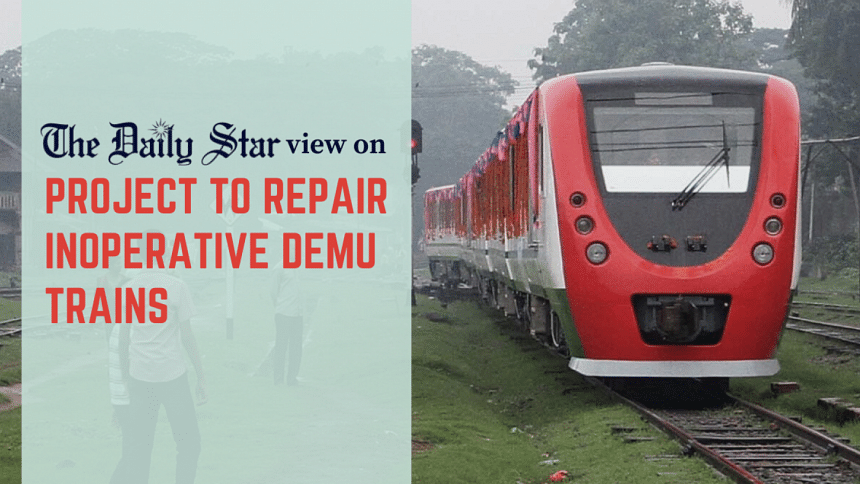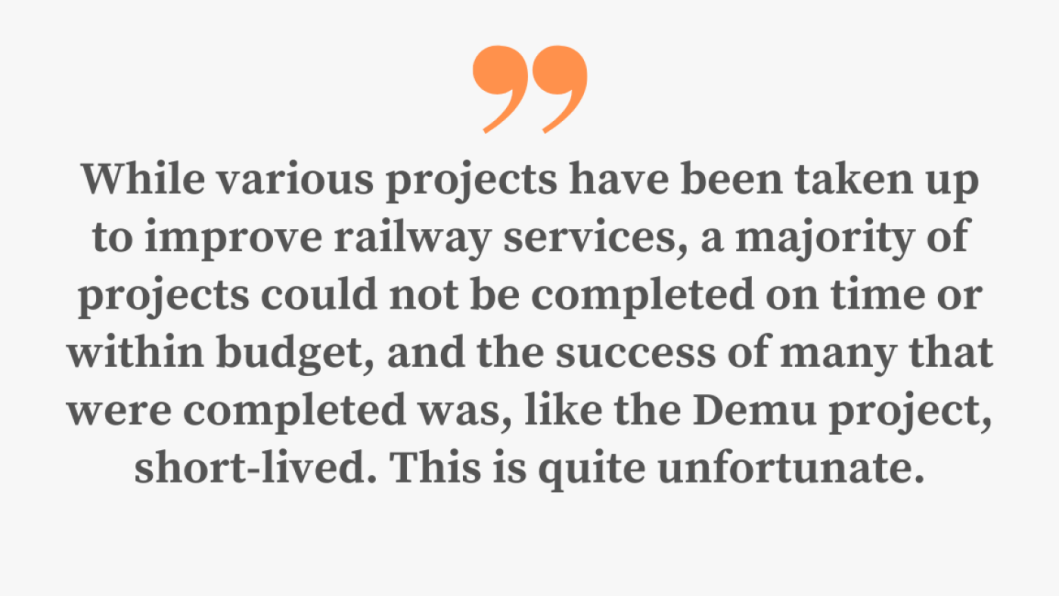Another wasteful railway project

We are quite unconvinced about the recent initiative taken by Bangladesh Railway to repair 20 sets of Demu (diesel-electric multiple unit) trains – bought from a Chinese company in 2013 at the cost of Tk 600 crore – that have gone out of order. While the trains were supposed to run for at least 35 years, they became non-functional within 7 years of operation due to lack of maintenance. Reportedly, railway officials couldn't fix them because they didn't have the necessary technology and knowhow to do it. It was also found to be very expensive to get them repaired by the company that supplied them.
However, recently, a team of local engineers repaired one set of trains by replacing the imported technologies with local ones. The success has apparently made railway authorities interested in similarly repairing all the Demu trains. The question is, will that be cost-effective and sustainable in the long run? And why did the trains become inoperative within just seven years?

According to sources at Bangladesh Railway, the total cost of repairing one set of trains may be over Tk 1 crore. This means that over Tk 20 crore would have to be spent to make them all functional again. But what guarantee is there that the plan will work this time? Will it be worth the money and effort? It is, however, good to know from the railway minister that they will take the decision after monitoring the performance of the repaired trains. That should indeed be the case, because repairing all at once at such a huge cost would only be rational if they can run for many years and turn profits for the railway.
Needless to say, buying these high-tech trains without ensuring the necessary support system was a big mistake on the part of the railway. Reportedly, eight government officials, including some from the railway ministry, went to China to evaluate these trains' performance and suitability for Bangladesh. Clearly, they did not do their job well. We think those involved in evaluating and purchasing these high-cost and high-maintenance trains must be held to account. Otherwise, such waste of public money in unnecessary projects cannot be stopped.
It should be noted that, over the last decade, Bangladesh Railway has become a serial lossmaker. It has not made any profit since FY 2008-09. In the FY 2021-22 alone, it made a loss of around Tk 2,300 crore. While various projects have been taken up to improve its service, a majority of projects could not be completed on time or within budget, and the success of many that were completed was, like the Demu project, short-lived. This is quite unfortunate.
We think the railway ministry must think carefully and critically before taking up such projects in the future, particularly at this time of a serious economic crisis. The authorities must also consider all possibilities before green-lighting the Demu repair project, and hold accountable all responsible for its initial failure.

 For all latest news, follow The Daily Star's Google News channel.
For all latest news, follow The Daily Star's Google News channel. 





Comments